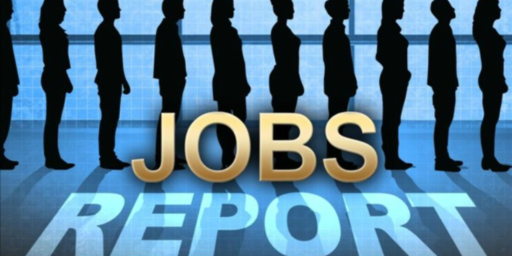2005 a Very Good Year Economically
TCS Host and American Enterprise Institute fellow James Glassman points out that we have a lot to celebrate about the American economy:
Stephen Moore of the Wall Street Journal and Lincoln Anderson of LPL Financial Services recently pointed out that the latest Census data show that, far from shrinking or losing ground, the middle class in America has become a good deal richer. “Back in 1967,†they write, “the income range for the middle class [that is, the third of five quintiles] was between $28,800 and $39,000 (in today’s dollars). Now that income range is between $38,000 and $59,000.†In 1967, one family in ten had an income of more than $75,000 (in 2004 dollars); today, it’s one in four.
Granted, this is partly a function of dual income families being the norm rather than an exception. Still, we forget how much better off we are materially than our generational forebearers. We live in much bigger houses, drive more luxurious automobiles, and surround ourselves with all manner of technological wonders scarcely imaginable 25 years ago.
While some of this is just the march of progress–success breeding success, the rich getting richer, and all that–a substantial part of it is attributable to relatively free markets and loose governmental regulation:
When the final figures are in, it is almost certain that our Gross Domestic Product — the single best indicator of economic progress — grew by more than 3.5 percent once again in 2005, compared with about 1.5 percent for the Euro Zone (the part of Europe, mainly Germany, France and Italy, that uses the euro as currency). U.S unemployment is 5 percent, compared with rates twice that high in Europe. We are creating net new jobs (that is jobs gained minus jobs lost) at a rate of 2 million a year. Inflation is low, and the stock market — unless something dire happens this week — will rise for the third year in a row.
That level of sustained growth, especially as compared with our European cousins, is impressive.
Further good news is that, Europe excepted, the rest of the world has enjoyed superb growth this year, and the U.S. has provided much of steam for the global engine. Yes, this means that we have a large trade deficit, but we can afford it. Our economic strength has boosted the value of dollar, and we̢۪re attracting gouts of investment cash from around the world.
Globally, 2004 and 2005 were the two best years in a row since the 1970s. Latin America will grow more than 4 percent; China, about 9 percent; India, nearly 8 percent. Even Japan, which has been in the doldrums for more than a decade, is back on track.
Good news, indeed. Not only is this objectively good–prosperity brings happiness, all things being equal–but it is economically and politically helpful, too. Richer people can afford to buy more goods from one another, which should continue the cycle. And richer societies are more likely to insist on popular sovereignty and resist war, both internal and external.
If there’s any downside to the good news it is, as Arnold Kling points out, that the steady flow of rising revenue allows politicians to postpone hard choices.
We are headed for the scenario that I called “affordable welfare state,” meaning that the lavish benefits that we have promised ourselves when we get older will require relatively modest increases in tax rates. Tax revenues will be high because incomes and payrolls will be high.
If we have to choose, though, between responsible social policy and robust economic growth, I’ll take the latter. Every time.




